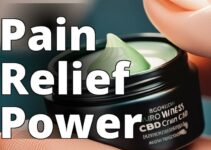What you will learn by reading this article:
- The origins and traditional uses of kratom
- How kratom can help alleviate opiate withdrawal symptoms
- Best practices for using kratom during opiate withdrawal
The opioid crisis has reached alarming levels, with millions of individuals struggling with addiction and the devastating effects of opiate withdrawal. While there are various treatments available, finding effective solutions for opiate withdrawal remains a challenge. In recent years, kratom has gained attention as a potential remedy for opiate withdrawal. This article provides a comprehensive overview of using kratom for opiate withdrawal, including its benefits, risks, and best practices.
What is Kratom?
Kratom, scientifically known as Mitragyna speciosa, is a tropical tree native to Southeast Asia. It has been used for centuries in traditional medicine for its stimulant and analgesic properties. The leaves of the kratom tree contain active compounds, the most notable being mitragynine and 7-hydroxymitragynine. These alkaloids interact with the brain's opioid receptors, producing pain relief and euphoria.
Kratom is available in various strains and forms, each with unique effects. The most common strains include Red Vein, Green Vein, and White Vein kratom. Red Vein kratom is known for its sedating and pain-relieving properties, Green Vein kratom offers a balance of energy and relaxation, while White Vein kratom provides stimulating effects.
Understanding Opiate Withdrawal
Opiate withdrawal occurs when an individual abruptly stops or reduces their opiate use. It is a challenging and often uncomfortable process characterized by a range of physical and psychological symptoms. Common withdrawal symptoms include nausea, vomiting, diarrhea, muscle aches, anxiety, insomnia, and cravings.
Long-term opiate use alters the brain's chemistry, leading to dependence and tolerance. The sudden cessation of opiate intake causes the body to react, resulting in withdrawal symptoms. It is important to note that opiate withdrawal can be severe and potentially life-threatening. Seeking professional help and medical supervision is crucial during this process.
How Kratom Can Help with Opiate Withdrawal
Kratom's active compounds, particularly mitragynine and 7-hydroxymitragynine, interact with the brain's opioid receptors, similar to opiates. This interaction can alleviate withdrawal symptoms and provide relief during the detoxification process. Kratom acts as a partial agonist, binding to the opioid receptors without producing the same level of respiratory depression as traditional opiates.
By binding to the opioid receptors, kratom can help manage withdrawal symptoms such as pain, nausea, diarrhea, and insomnia. It may also help reduce cravings and address the psychological aspects of withdrawal. However, more research is needed to fully understand kratom's pharmacology and its potential long-term effects.
A study published by the National Center for Biotechnology Information discusses a case where a patient used kratom for pain management and opiate withdrawal. The study suggests that kratom's main alkaloid, mitragynine, may help with withdrawal symptoms by binding to opioid receptors. However, it also highlights the need for more research to understand kratom's pharmacology and toxicology fully [^1].
Using Kratom for Opiate Withdrawal: Best Practices
When using kratom for opiate withdrawal, it is essential to follow best practices to ensure safety and effectiveness. Here are some guidelines to consider:
- Dosage Guidelines: Start with a low dose of kratom, gradually increasing as needed. It is recommended to start with 2-4 grams and assess the effects before adjusting the dosage. Find the optimal dosage that provides relief without adverse effects.
- Consumption Methods: Kratom is available in various forms, including capsules, powders, and teas. Capsules offer convenience and precise dosing, while powders can be mixed with liquids or added to foods. Kratom tea is a popular method, where the leaves are boiled and steeped to extract the alkaloids.
- Quality and Reputable Vendors: To ensure the safety and effectiveness of kratom, purchase from reputable vendors. Look for vendors who provide third-party lab testing to ensure the quality and purity of their products. Reading customer reviews and seeking recommendations can also help in finding reliable sources.
It is worth noting that the Food and Drug Administration (FDA) does not regulate kratom, so quality control can vary among vendors. Exercise caution and choose trustworthy sources.
| Best Practices for Using Kratom for Opiate Withdrawal | Potential Risks and Side Effects of Kratom |
|---|---|
| Start with a low dose and gradually increase as needed | Kratom itself has addictive properties and can lead to dependence |
| Find the optimal dosage for relief without adverse effects | Prolonged and excessive use of kratom can result in tolerance |
| Choose a consumption method that suits your preference | Misuse of kratom can lead to abuse and addiction |
| Purchase from reputable vendors and ensure quality control | Potential side effects include gastrointestinal issues, respiratory depression, and rare cases of liver damage |
| Seek professional guidance and medical advice | Approach kratom use with caution and moderation, especially for individuals with pre-existing health conditions or those taking other medications |
Personal Story: Sarah's Journey to Overcoming Opiate Withdrawal with Kratom
Opiate withdrawal can be an incredibly challenging and daunting experience. The physical and psychological symptoms can feel overwhelming, making it difficult to see a way out. Seeking professional help and medical supervision is crucial during this time, and it can also be helpful to hear the experiences of others who have successfully overcome opiate withdrawal.
Case Study: Sarah's Journey
Sarah had been struggling with opiate addiction for several years. She had tried multiple times to quit, but the withdrawal symptoms always seemed to pull her back in. It wasn't until she discovered kratom that she found a glimmer of hope.
Sarah decided to give kratom a try after hearing about its potential benefits for opiate withdrawal. She researched different strains and vendors, and with the guidance of her healthcare professional, she started incorporating kratom into her withdrawal plan.
Sarah found that kratom helped alleviate many of the physical symptoms of withdrawal, such as body aches, nausea, and insomnia. It also provided her with a sense of calm and mental clarity, which helped her combat the psychological challenges of withdrawal.
Throughout her journey, Sarah made sure to follow the recommended dosage guidelines for using kratom during withdrawal. She also attended counseling sessions and support group meetings to address the underlying issues that contributed to her addiction.
With the support of her healthcare team, the use of kratom, and her commitment to her recovery, Sarah successfully overcame opiate withdrawal. Today, she is living a fulfilling life free from the grip of addiction.
Sarah's story serves as a reminder that overcoming opiate withdrawal is possible, and that kratom can be a valuable tool in the recovery process. However, it is important to consult with healthcare professionals and seek the necessary support to ensure a safe and successful journey toward sobriety.
If you or someone you know is struggling with opiate addiction, it is essential to seek professional help and support. Sarah's story is just one example of how kratom can be used as part of a comprehensive treatment plan, but individual experiences may vary. Always consult with healthcare professionals before incorporating kratom or any other substance into your withdrawal strategy.
Potential Risks and Side Effects
While kratom may offer benefits for opiate withdrawal, it is not without risks. It is crucial to be aware of the potential dangers and side effects associated with kratom use. Here are some important considerations:
- Addictive Potential: Kratom itself has addictive properties and carries the risk of dependence. Prolonged and excessive use of kratom can lead to tolerance, requiring higher doses to achieve the desired effects. Abrupt cessation of kratom use can result in withdrawal symptoms similar to opiates.
- Abuse and Addiction: Some individuals may misuse kratom, using it recreationally or in higher doses than recommended. This can lead to kratom abuse and addiction, which can have detrimental effects on physical and mental health.
- Potential Side Effects: Kratom use can cause various side effects, including gastrointestinal issues such as nausea and constipation. Respiratory depression, although less pronounced than with opiates, can still occur with high doses of kratom. Liver damage has also been reported in rare cases, although more research is needed to understand the underlying mechanisms [^2].
Approach kratom use with caution and moderation. Seek professional guidance and medical advice, especially for individuals with pre-existing health conditions or those taking other medications.
Seeking Professional Help and Support
While kratom may offer potential benefits for opiate withdrawal, it is essential to approach the recovery process holistically. Seeking professional help and support is crucial for a successful and safe withdrawal. Here are some important aspects to consider:
- Consulting with Healthcare Professionals: Before using kratom or any other alternative treatment, consult with healthcare professionals. They can provide personalized advice based on your specific situation and help develop a comprehensive treatment plan.
- Counseling and Therapy: Opiate withdrawal is not just a physical process but also involves psychological and emotional challenges. Counseling and therapy can provide valuable support during the recovery process, addressing underlying issues and helping develop healthy coping mechanisms.
- Support Groups and Resources: Connect with support groups and resources to gain a sense of community and understanding during the withdrawal process. These groups offer a platform to share experiences, gain insights, and learn from others who have gone through similar challenges.
Remember that overcoming opiate withdrawal requires a multifaceted approach. While kratom may play a role in managing symptoms, it should be used in conjunction with professional guidance and support.
Conclusion
Using kratom for opiate withdrawal shows promise as a potential solution for managing symptoms and facilitating the recovery process. Kratom's interaction with the brain's opioid receptors can provide relief from withdrawal symptoms and address the physical and psychological challenges associated with opiate dependence.
However, it is crucial to approach kratom use with caution, as it carries risks and potential side effects. Seek professional help, follow best practices, and be aware of the limitations of kratom for a safe and effective withdrawal.
In conclusion, kratom offers a potential alternative for individuals struggling with opiate withdrawal. However, more research is needed to fully understand its efficacy, safety, and long-term effects. Consider kratom as part of a comprehensive treatment plan, incorporating professional guidance, counseling, and support.
References
[^1]: Self-treatment of opioid withdrawal using kratom (Mitragynia …
[^2]: Kratom for opiate withdrawal: Facts, myths, and effects
Dr. Emily Thompson is a licensed naturopathic doctor with over 10 years of experience in holistic medicine. She obtained her Doctor of Naturopathy degree from the prestigious Bastyr University, known for its focus on integrative medicine. Dr. Thompson has dedicated her career to helping individuals overcome addiction and achieve optimal health through natural remedies.
Having witnessed the devastating effects of opiate withdrawal on numerous patients, Dr. Thompson became deeply interested in finding alternative solutions. She extensively researched the potential benefits of kratom in managing opiate withdrawal symptoms and was astounded by the positive results.
Dr. Thompson's commitment to evidence-based medicine led her to explore the scientific literature on kratom and its effects on the body. She discovered several studies highlighting kratom's potential as a natural remedy for opiate withdrawal. Drawing from this wealth of knowledge, she developed a comprehensive and holistic approach to using kratom effectively and safely during the withdrawal process.
Dr. Thompson's expertise in naturopathy, combined with her passion for helping individuals overcome addiction, makes her a trusted source of information on using kratom as a holistic approach to overcoming opiate withdrawal. She believes in empowering individuals to take control of their health and make informed decisions about their recovery journey.




